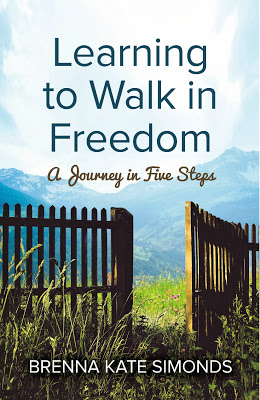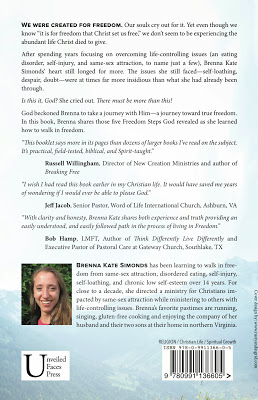This is a continuation of a post from last week, A Place for Obedience, part 1.
Let me share another analogy. Imagine that a person who has walked with a limp his whole life finds out there is a procedure available to correct that limp. Because he has walked with a limp for so long, his muscles have actually conformed and adjusted to accommodate his limp. He has the procedure but still needs to undergo physical therapy to strengthen his weakened muscles.
He needs to relearn how to walk.
We as believers should not be surprised that we walk with a limp. All of humanity walks with the same limp. Yet, as believers, we have the opportunity to learn to walk in freedom through Christ’s work on the cross and the power of the Holy Spirit.
We can proactively make choices to act like the free person that we already are.
Here is the issue. This is what many of us might think it looks like to act like a free person.
We believe that God wants us to behave better than we are. We know God wants us to do certain things and doesn’t want us to do others. Thus, we gather knowledge, and with that knowledge, we try really hard to behave how we think God wants us to behave.
How does this pattern play itself out in our lives? Say you have a struggle with pornography. You know you shouldn’t view it. In fact, you get even further convicted when, after having an all-night Saturday porn marathon, you go to church on Sunday and the pastor preaches on the dangers of pornography. You go to the altar, you repent as best you know how, you might even ask someone to pray for you with some vague sharing like, “I just feel God speaking to me and need prayer.”
Then you go home and try harder. Maybe you even read some books on why pornography is bad, how the industry treats the workers, how the struggle enslaves a person, and maybe even some tips on overcoming. And you keep trying harder.
Then you likely fall again.
This is basically what I did, as described in Freedom Step Three. I would feel genuinely convicted about something. I would be truly grieved by my sin and exhausted by the insanity the cycle of sin produced in my life. I would gather materials to help me understand the struggles, and I would try and use that knowledge to inspire myself to better behavior.
I had sincere intentions, but I was going about it the wrong way.
How then would a free person act?
A free person actively overcomes life-controlling issues by becoming plugged in to the power source and remaining plugged in.
In doing a search in the New Testament for the word power, I noticed that Luke, in the gospel he wrote, talks about power more than the other three gospels combined. He talks about Jesus doing what He did under the power of the Holy Spirit.
Luke also wrote the book of Acts, often referred to as the Acts of the Apostles, or sometimes even the Acts of the Holy Spirit. In the beginning of the book of Acts, it is recorded that Jesus told the apostles to wait in Jerusalem because “you will receive power when the Holy Spirit comes on you.” (Acts 1:8) Luke had seen this power, the power of the Holy Spirit, up close and had experienced it intimately. He saw its importance. He observed the difference it made in the lives of the disciples, including Peter, who, on the day of Pentecost when the Holy Spirit came upon them in Jerusalem, shared the hope of Jesus Christ with the crowds, and 3,000 people believed and were baptized.
God is meant to be our source of power.
Through His Holy Spirit given to us as believers, we can be empowered to make better choices. Rather, what we often do is take our knowledge and will power and try to make these things our source of power for overcoming our struggles.
Bob Hamp gives this analogy. It’s like taking the ethernet cable (which connects your computer to the internet) and plugging it into the spot for the power cord. We try to take data, the knowledge we have gathered, and use that to fuel us into obedience in hopes that we will derive power from that data.
I quoted 2 Peter 1:3 earlier, that “His divine power has given us everything we need for life and godliness.” Imagine that we, as believers in Jesus, are like a lamp. That lamp has everything in it that it needs in order to function as it was created to: electrical wires, functioning light bulbs, and a switch to turn it on, but if I do not plug in the lamp to the electrical outlet, it won’t work.
In the Garden of Eden, not only did we become disconnected from our source of life, we became disconnected from our source of power. That power enters back into us when we become believers, as every believer receives the Holy Spirit, but we need to continually reconnect.
That doesn’t mean the Holy Spirit comes and goes completely as it often did in the Old Testament stories, where we read about the Holy Spirit coming upon people so they can prophesy or be empowered for leadership or an event. The Holy Spirit always dwells in believers. Yet Paul commands the Ephesus church to be “filled with the Holy Spirit.” (Ephesians 5:18) Why would Paul be telling believers to be filled with the Spirit? They already had the Holy Spirit in them. We can gather from the passage, then, that we are implored to “keep being filled.” The passage shows us that the filling of the Spirit is something we need to continually seek and ask for.
We need to continually be reconnected with our power source.
continued next week






